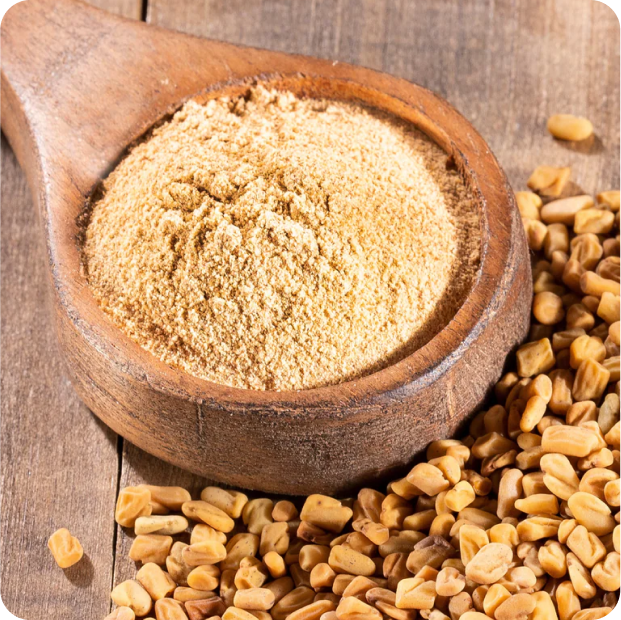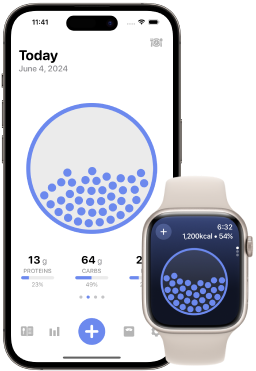
Fenugreek, A herb with Immense Benefits for Weightloss
Fenugreek (Trigonella foenum-graecum) is an ancient herb that has been used for centuries in traditional medicine and culinary practices. Native to the Mediterranean, Southern Europe, and Western Asia, this herb is well-known for its medicinal properties, particularly in managing weight, blood sugar levels, and digestion. Recent studies and anecdotal evidence have highlighted fenugreek’s role in aiding weight loss, making it a natural and effective remedy for those looking to shed extra pounds.
This blog explores how fenugreek can help with weight loss, its nutritional profile, benefits, ways to consume it, and potential side effects.
Nutritional Profile of Fenugreek
Fenugreek seeds and leaves are packed with essential nutrients that contribute to overall health. Some key nutrients found in fenugreek include:Fiber: Aids digestion and helps in keeping you full longer.
Protein: Essential for muscle repair and growth.
Iron: Supports oxygen transportation in the blood.
Magnesium: Regulates metabolism and energy production.
Manganese: Helps in the metabolism of carbohydrates and fats.
Antioxidants: Combat oxidative stress and inflammation.
How Fenugreek Aids in Weight Loss
Fenugreek is one of the most beneficial herbs of ancient times. Known for its anti-properties, this is one such herb that also helps in weight loss. How? Let’s find out:1. Enhances Satiety and Reduces Appetite
One of the primary ways fenugreek helps with weight loss is by promoting a feeling of fullness. The high fiber content in fenugreek, especially the soluble fiber galactomannan, slows down digestion and carbohydrate absorption. This leads to prolonged satiety, reducing overall calorie intake.2. Boosts Metabolism
Fenugreek contains compounds that may enhance metabolic activity. By improving the metabolism and digestion, fenugreek helps to burn calories more efficiently along with other activities.3. Regulates Blood Sugar Levels
Unstable blood sugar levels can lead to increased hunger and cravings, particularly for sugary and high-calorie foods. Fenugreek contains natural compounds that help regulate sugar levels naturally into the blood by improving insulin sensitivity. This not only aids in weight management but also reduces the risk of diabetes.4. Aids Digestion and Reduces Bloating
A healthy digestive system is crucial for weight loss. Fenugreek has been traditionally used as a digestive aid, helping to reduce bloating, constipation, and indigestion. The fiber in fenugreek supports gut health by promoting healthy gut bacteria.5. Fat Breakdown and Lipid Reduction
Studies suggest that fenugreek may help in breaking down fat more efficiently. It reduces bad cholesterol (LDL) levels and triglycerides while promoting good cholesterol (HDL), contributing to overall weight management.Ways to Consume Fenugreek for Weight Loss

1. Fenugreek Water (Methi Water)
One of the most popular ways to consume fenugreek for weight loss is by soaking fenugreek seeds in water overnight. Drinking this water on an empty stomach in the morning can help boost metabolism and reduce appetite.How to Prepare:
Soak 1-2 teaspoons of fenugreek seeds in a glass of water overnight.
Strain and drink the water in the morning on an empty stomach.

2. Fenugreek Tea
Fenugreek tea is another excellent way to incorporate this herb into your weight loss routine.How to Prepare:
Boil 1 teaspoon of fenugreek seeds in a cup of water for 5-10 minutes.
Strain and add honey or lemon for taste.
Drink this tea 30 minutes before meals to reduce appetite.

3. Sprouted Fenugreek Seeds
Sprouting enhances the nutritional benefits of fenugreek seeds and makes them easier to digest.How to Prepare:
Soak fenugreek seeds overnight.
Drain the water and keep them in a damp cloth for 1-2 days until they sprout.
Eat them raw or add them to salads and dishes.

4. Fenugreek Powder
Fenugreek powder can be added to smoothies, soups, or even sprinkled over meals to enhance its benefits.How to Use:
Take 1 teaspoon of fenugreek powder daily, either with warm water or mixed into foods.

5. Fenugreek Supplements
If in case you find fenugreek to be very bitter in taste and difficult to take in its original form, then these supplements could work wonders for you. However, it’s advisable to consult a healthcare professional before starting any supplement.Other Significant Benefits & Side Effects of Fenugreek
Benefits of consuming Fenugreek
Helps stimulate breast milk production
May reduce the risk of heart and blood problems
May help reduce inflammation
May Improve sperm count and testosterone levels
Side Effects of Fenugreek
May trigger allergic reaction to some
May cause digestive issues when consumed in large amount.
Pregnant women should consult a doctor before making any major changes into their diet.
